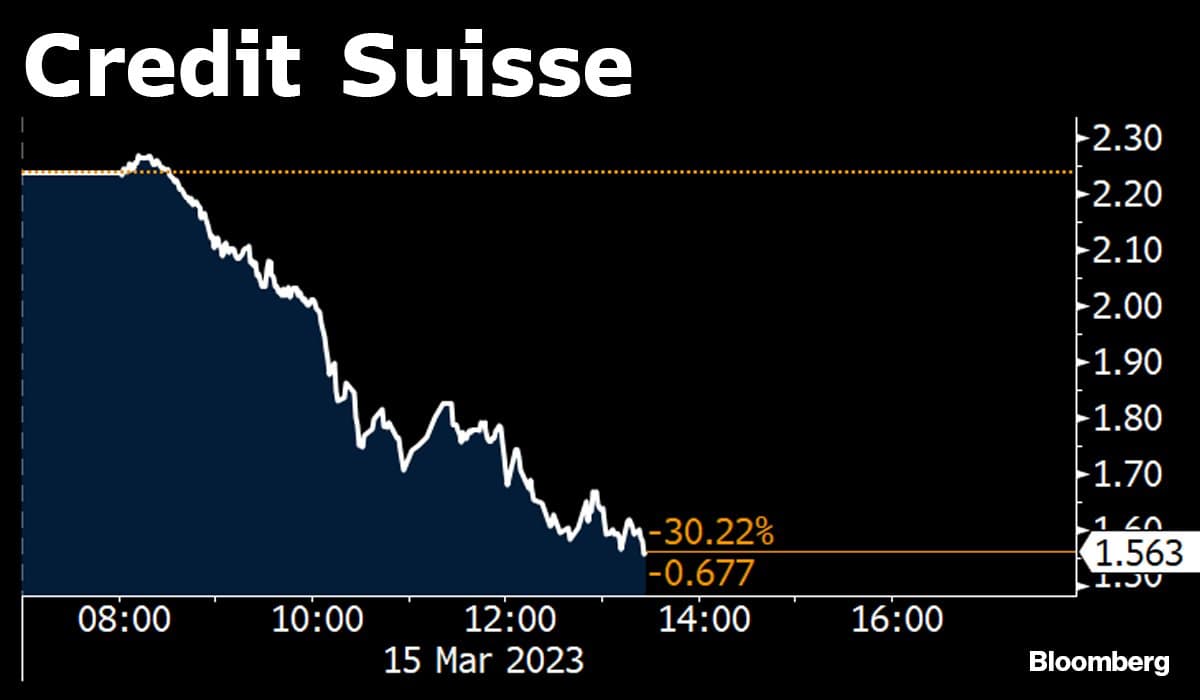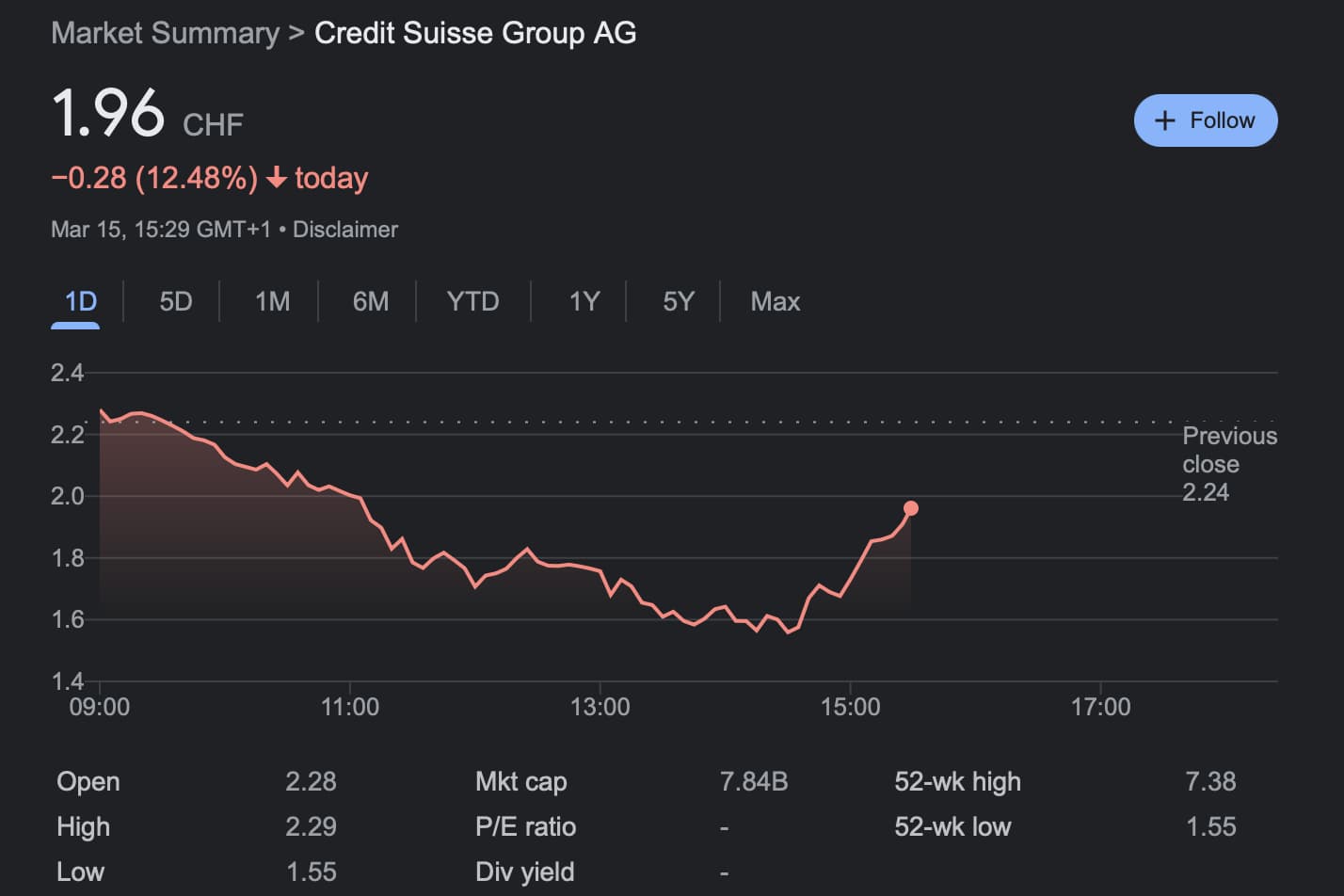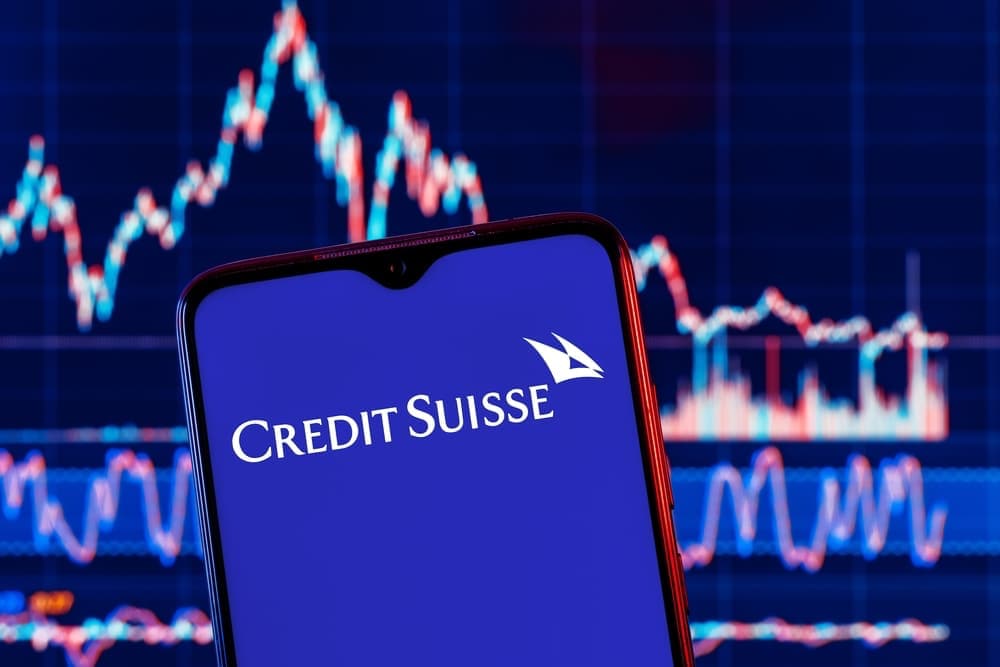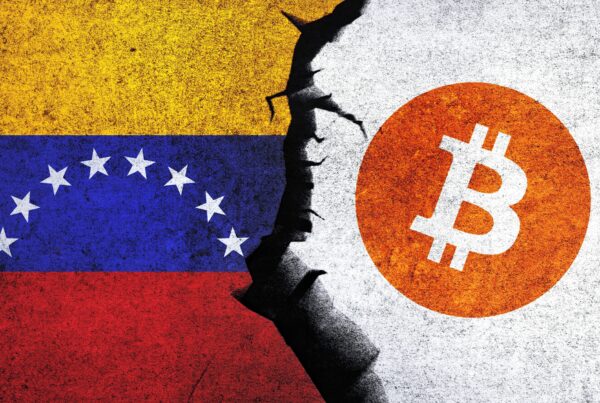After its largest shareholder’s announcement that it could not offer any more assistance, Credit Suisse’s (SWX: CSGN) share price hit an all-time low, falling by as much as 30% on Wednesday, March 15, requiring the CEO of the Swiss bank to provide new assurances on the firm’s financial health.
It was announced the 9.88% Credit Suisse stake held by the Saudi National Bank (SNB) would not be increased due to regulatory concerns. In turn, renowned economist Nouriel Roubini also known as ‘Dr. Doom’ warned, ‘Credit Suisse, by some standards, might be too big to fail but also too big to be saved’ in an interview with Bloomberg on March 15.
“It’s not clear that, unlike the US, the federal system has enough resources to engineer a bailout, and what they need certainly is more capital the question is whether they will get that capital or not otherwise, bad things can happen.”
The new record low for the Swiss bank’s stock price came on Wednesday afternoon, as it fell as low as 30.22% to 1.56 CHF before reclaiming more than half of the losses.

Indeed, at press time, Credit Suisse was down 12.48% after regaining some ground to trade at 1.96 Swiss francs ($2.12).

Potential Ripple effect on the banking sector
Titan Asset Management’s chief investment officer, John Leiper, is worried about a “ripple effect” from the banking sector’s troubles.
Leiper said:
“Credit Suisse stock is plunging today as the fallout from the Silicon Valley Bank collapse continues. We remain concerned that these ripple effects will continue to spread across the economy and retain a defensive exposure at this time.”
Credit Suisse’s CEO Ulrich Koerner tried to ease concerns by claiming the bank’s liquidity was healthy and in excess of regulatory minimums. Koerner had earlier in the week reported that Credit Suisse’s average liquidity coverage ratio for the first quarter of this year was 150%.
The Credit Suisse crisis prompts the age-old debate about whether we are seeing the start of a worldwide financial meltdown or whether this is only an isolated incident. Whilst it was generally agreed that Credit Suisse was the weakest, if not one of the weakest, of Europe’s major banks, it is hardly the only one to have had poor profitability in recent years.
Interestingly, Robert Kiyosaki, the author of the best-selling personal finance book “Rich Dad Poor Dad,” had previously projected a broader global economic collapse while noting that bank runs might accelerate amid the crisis. He warned about a third US bank collapse comes as speculation around investment bank Credit Suisse continues to mount.






